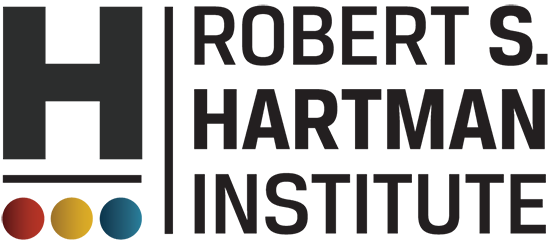Suzie Price, RSHI Board Member shares why she is involved in the Robert S. Hartman Institute and why Hartman's work "grabbed" her heart and soul and has not 'let her go' since she was first certified in value science 15+ years ago.
In a moment of despair and crisis, my 80-year-old friend whispered, "This is not how I wanted my life to turn out."
Her grief was about roads not taken and joy not lived. I know many details about her life, so I knew that, even though she could not see it at the moment, there WERE things in her life that she felt good about.

Times of crisis can cause us to be more honest, reflective, and intentional. The struggle to create a life that feels purposeful and "right" is something the young and old, wealthy and poor, educated and uneducated, all wrestle with.
Robert S. Hartman (1910 – 1973) was a philosopher, professor, and business leader who was nominated in 1973 for the Nobel Peace Prize. He pioneered the science of values (”Axiology”) as a field of study.
Hartman focused his work on defining how to live a balanced and meaningful life. He guided his students to reflect on their answers to many questions, including:
What am I here for in this world?
Thinking about how to optimize and prioritize your values, and about the impact you want to make in your life, provides a beautiful framework for a natural decision-making process in your daily life, helping you make choices and create a life without regrets.
Licensed Professional Counselor and Fellow and Member of the RSHI Wisdom Council Arthur R. Ellis, PhD studied axiology under Hartman while Hartman was a professor at the University of Tennessee in the late 1960s. In the Appendix of Freedom To Live: The Robert Hartman Story, Ellis describes him this way:
"He was a person of formidable knowledge, intellectual intensity, and creative insight
all of which he used assiduously in the analysis and synthesis of data regarding his theory
of value. He was constantly scribbling notes on little pieces of paper (many of which are in the
Hartman Collection at the John C. Hodges Library Archives at U.T.)
chuckling to himself about his latest revelation. Above all, he was a person of
great warmth and compassion who attempted to make the intrinsic a real part of his life."
Hartman acknowledged the power of knowledge (Thinking) and the social self (Doing), but he placed higher importance on building a strong inner self (Being).
Hartman shared, "To be - is probably the most difficult and, at the same time, the most important task of our moral lives. In daily life, it is the highest maturity, and it is also very powerful for it can bring into play the infinity of your intrinsic Self."
He understood that when we are one with our self, we become at one with all living things.

Hartman famously said, "Your inner self, your humbler Being, is what makes dogs lick you. That's all."
I first learned about Hartman 15 years ago when I became certified in the Hartman Value Profile (HVP) and the science of axiology which is currently the most tangible product from Hartman's work. The HVP is a road map for hiring for fit and leadership development and can serve as a guide to living a fully realized life.
During that certification process, I knew that I'd found the work that was mine to do.
I could feel it in my mind, my body, and my spirit. Hartman's work grabbed my heart and soul, and has not 'let me go' since! My elderly friend's angst is exactly WHY it "grabbed" me, and continues to consume me even today.
So, to my friends and colleagues everywhere, on those days when you wonder what you are here for, reach for personal meaning, connection, caring and compassion for yourself and others, first.
